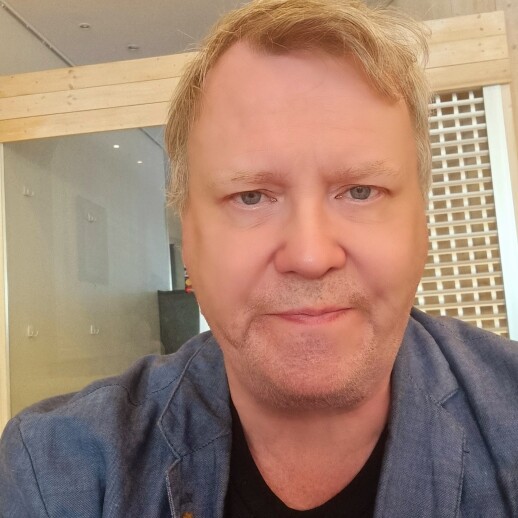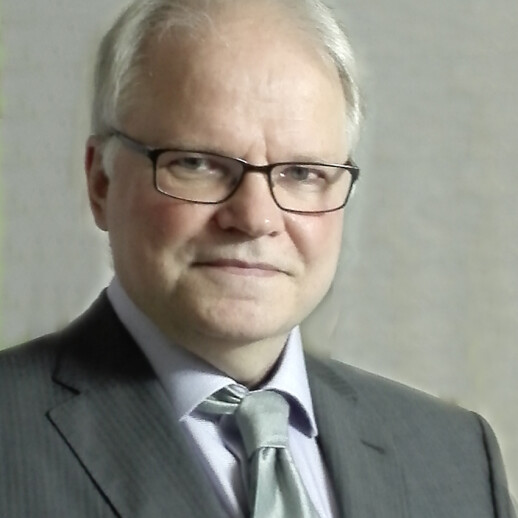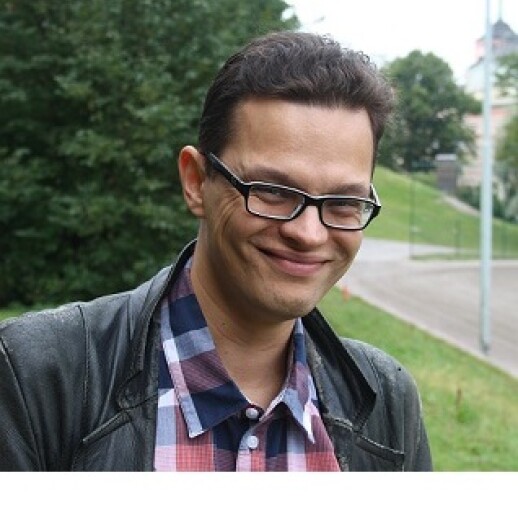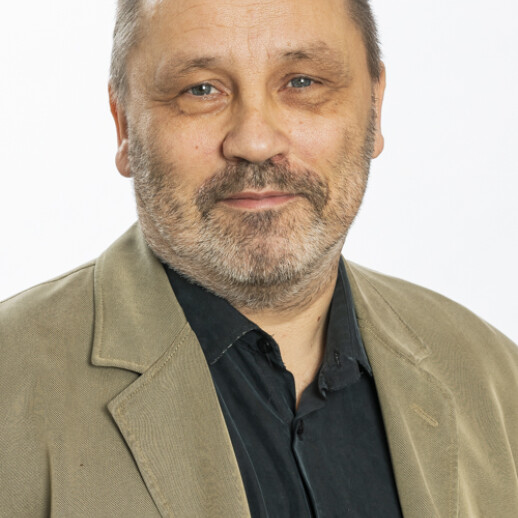Energy and environment research
The FFRC has a strong history as a pioneer in multidisciplinary environmental research and consultation. In our research projects, we have particularly concentrated on the modelling of sustainable development in addition to the development of indicators.
In connection with sustainable development, we have carried out many energy and climate studies. The goal of this research is to attempt to model changes occurring in development as well as identify factors which cause these changes. Background factors of change can be clarified with, e.g., the ASA tool, which has been developed at the FFRC.
We carry out collaboration not only with the public sector but also with firms and top-level international research facilities in the field. The research group is made up of a comprehensive group of engineers, economists and sociologists.
Ongoing international research projects
The CRECE project supports Cuba in the provision of regionally relevant multidisciplinary education in sustainable energy engineering and renewable energy development.
This is done in order to ensure that Cuban higher education institutions (HEIs) are better equipped and able to provide high-quality experts for the ever-growing societal and energy sector development needs. The Cuban energy sector is undergoing a state-led transformation. So far, this “Energy Revolution” has improved energy efficiency but harnessing renewable energy (RE) resources is still lagging far behind. In order to attract investors, meet the government’s RE targets, and reduce CO2 emissions and environmental pollution from fossil fuels, Cuba needs national expertise and experts in RE development. CRECE answers this call by training skilled experts and enabling cross-sectoral and regional cooperation possibilities.
Partners:
- Finland Futures Research Centre (FFRC), University of Turku, Finland;
- Tampere University of Technology (TUT), Finland;
- Europa-Universität Flensburg (EUF), Germany;
- University of León (ULE), Spain;
- University of Oriente (UO), Cuba;
- Instituto Superior Politécnico Jose Antonio Echeverria (CUJAE), Cuba;
- Instituto Superior Minero Metalúrgico de Moa (ISMMM), Cuba;
- United Nations University for Peace (UPeace), Costa Rica;
- EARTH University (Earth), Costa Rica;
- University of Vigo (Uvigo), Spain;
- CubaEnergia, Cuba;
- Centro de Investigacion de Energia Solar (CIES), Cuba;
- Universidad Autónoma deCentroamérica (UACA), Costa Rica
CRECE project is funded by Erasmus+ Capacity Buiding in Higher Education during 10/2017-10/2020.
Hankkeen tutkijat Tulevaisuuden tutkimuskeskuksessa:
Mika Korkeakoski, Noora Vähäkari ja Jyrki Luukkanen
Hankesivusto: https://erasmus-crece.fi
The ‘Cuban Energy Transformation’ (IRIS) project develops new tools and methods for planning the energy system. The project concentrates on aspects related to the integration of intermittent renewable energy sources, mainly wind and solar, in the Cuban electricity system and the problems and advantages related to it. The target is to develop renewable energy scenarios which take into account the global development context and the political, economic, social, technological, environmental and cultural (PESTEC) dimensions of development.
The project looks at the interlinkages of these different aspects in the context of the transformation processes taking place in Cuba. Development of the local research capacity in participating Cuban universities and research centres is one target. Dissemination and utilization of the research results will take place via stakeholder workshops and the active contacts of the partner institutions to Cuban ministries and other organisations.
Finland Futures Research Centre/University of Turku and Tampere University of Technology are the Finnish partners of the project. Principal investigator of the project is Dr. Jyrki Luukkanen. The Cuban partners of the project include: Universidad de Oriente, Santiago de Cuba; Instituto Superior Politécnico Jose Antonio Echeverria, Technical University of Havana, CUJAE; CubaEnergia; and CIES (Centro de Investigacion de Energia Solar, Cuba).
Funding: Academy of Finland, 2019-2022.
Further information: Jyrki Luukkanen
The DEEM project responds to the identified needs of the Mekong HEIs to:
1) create sustainable energy engineering curricula
2) improve the sustainable energy knowledge and promote innovative pedagogical approaches and skills to foster research oriented learning
3) improve the international, national and regional networks and knowledge exchange
The project aims to integrate futures and sustainability thinking, promote innovation and entrepreneurship, build public-private partnerships and include innovative teaching methods. Associate partners from the national governments and civil society provide guidance on most relevant challenges and skills needed.
The wider objective is to ensure that the partner HEIs are able to respond to the capacity and employment needs of sustainable energy development in Cambodia, Laos and Myanmar. The objective will have a direct link to strengthening the integration of sustainable energy goals into national level energy policies, provide qualified energy experts into the local, national and regional labor markets and foster greater collaboration between the traditionally siloed public and private sectors and increase regional level cooperation and mobility in research, entrepreneurship and innovation.
The possible direct short term impacts include modernisation and internationalisation of HEIs, and in long term the project will contribute to sustainable energy policies, mitigation of climate GHG emissions and climate change, energy security and better access to energy for all.
DEEM is implemented by a large consortium of European and Mekong HEIs during 2016 to 2019, with University of Turku as the coordinator.
Further information:
Mika Korkeakoski, Noora Vähäkari and Jyrki Luukkanen
European Futures for Energy Efficiency (EUFORIE) responds to the EU Horizon 2020 Work Programme 2014–15 theme “Secure, clean and efficient energy”.
The project studies energy efficiency from different perspectives by applying methodologies developed in previous EU FP6 and FP7 projects, “Development and Comparison of Sustainability Indicators (DECOIN)” and “Synergies in Multi-scale Inter-Linkages of Eco-social systems (SMILE)”.
The project consortium consists of non-profit research organisations with a strong background in socio-economic energy research and/or sustainability indicators/ evaluation.
The project started on March 2015 and it will be completed during 45 Months.
Project personnel at the FFRC: Jarmo Vehmas, Jari Kaivo-oja and Juha Panula-Ontto.
Project website: http://www.euforie-h2020.eu/
The European Research Infrastructures in the International Landscape (RISCAPE) is a European Commission-funded H2020 project, focusing on international research infrastructures landscape analyses.
The objective of the RISCAPE is to provide systematic, focused, high quality, comprehensive, consistent and peer-reviewed international landscape analysis report on the position and complementarities of the major European research infrastructures in the international research infrastructure landscape.
The project is funded by European Commission during 2017–2019 and it is co-ordinated by the University of Helsinki.
Finland Futures Research Centre is in charge of conducting the WP6 "Energy RI Landscape analysis". The FFRC is a specialist research facility with extensive knowledge on multidisciplinary studies, particularly in the energy sector. It will bring to the consortium connections and knowledge on the Energy sector RIs in addition to more holistic view of the whole global research infrastructures.
Further information: Jari Kaivo-oja & Mikkel Stein Knudsen
Project website: http://www.riscape.eu
The Myanmar Energy and Environment Education (MEEE) project directly contributes to the development of sustainable and inclusive socio-economic growth in Myanmar by enhancing capacities of Myanmar partner institutions to provide quality education on environment and sustainable energy for growing societal and energy sector development needs.
Myanmar is currently in a critical time in its energy transition. To be able to attract investors in the renewable energy sector and to re-investigate the government’s RE targets, enhancing access to energy and electrification, as well as reducing CO2 emissions and environmental pollution from fossil fuels there is a dire need for nationally grounded energy expertise.
Partners of the project:
- Yangon Technological University
- Europa-Universität Flensburg
- Wageningen University
- University of Yangon
- University of Turku (coordinator)
- Tampere University
- Myeik University
- Mandalay Technological University
Project is funded by the Erasmus+ Programme and participating institutions during 11/2019–11/2022
Further information: Jyrki Luukkanen, Mika Korkeakoski, Noora Vähäkari & Osku Haapasaari, Finland Futures Research Centre
Ongoing national research projects:
Detailed information on the Finnish site
Many countries are now going through energy transitions by increasing the share of decentralised renewable energy as a part of the emerging bio-economy. In this project, we will study external drivers, actors, mental models, policies and institutions that affect sustainability in energy transition. They are analysed across the landscape, regime and niche levels of the multi-level perspective on socio-technical transition (MLP) framework.
The MLP framework is widely used in transition research, but to date it lacks a systematic inclusion of alternative futures that shape the actions taken on different levels. The project has:
- The theoretical and methodological objective of developing the MLP framework to a futureoriented integrative tool;
- The empirical objective of analysing the transition from centralised fossil based energy towards decentralised renewable energy up to 2030; and
- The societal objective of providing and interactively disseminating highly needed policy-relevant information regarding the prerequisites and obstacles of the energy transition.
We focus on three case technologies that are at different stages of socio-technical transition in Finland: Biogas, ground source heat pumps and woodchips burning.
Through the cases, we explore the current and emerging roles of consumers, producers and prosumers of energy, and the roles of international energy markets, policies and public framings shaping expectations and actions.
The project is organised into five work packages that are based on specific datasets and methods – a Delphi study, policy document analysis, key informant interviews, national survey and media content analysis.
Our aim is to spark a new generation of sustainability transition studies by the systematic integration of alternative futures at all critical sub-systems and process phases. By envisioning and elaborating alternative futures, and examining how they are taken into account, this approach also increases the agility of sociotechnical system transition.
The FutWend project employs a prominent consortium of central research institutions in the field of bioeconomy and sustainability and demonstrated excellence in futures research. The project is led by Finland Futures Research Centre and the collaborating partners are Finnish Environment Institute SYKE and Natural Resources Institute Finland LUKE.
The research team has a track record of over 200 peer-reviewed publications. The project continues and enhances close-knit teamwork across organisations and builds new international collaboration. It is based on a transdisciplinary approach sensitive to stakeholder knowledge.
The FutWend project is been funded by the Academy of Finland during 2016–2019.
Further information:
Petri Tapio (Project Leader), Ville Lauttamäki, Marjukka Parkkinen & Jarmo Vehmas at Finland Futures Research Centre
Vilja Varho, Natural Resources Institute Finland
Timo Assmuth, Finnish Environment Institute

The objective of the project ”Transition to a Resource Efficient and Climate Neutral Electricity System” (EL-TRAN) is to construct a roadmap for the transition towards a resource efficient and climate neutral electricity system in Finland. The roadmap covers production, transmission, distribution and consumption as well as storage of electricity.
The project aims to recognize different problems related to the transition process, and provides suggestions for potential solutions to the identified problems. The seven work packages deal with problems of the transition process from different perspectives by applying an interdisciplinary approach and methodology.
Finland Futures Research Centre is responsible for a work package titled ”Trends and scenarios”, which supports proactivity of the consortium regarding changes in the trends of electricity supply and demand, electricity market, policy choices relating to the electricity system, new technologies, and integration of the national electricity systems. To serve these objectives, backcasting scenarios will be constructed on alternative development paths towards a resource efficient and climate neutral electricity system.
EL-TRAN is a consortium coordinated by University of Tampere, School of Management. Finland Futures Research Centre is an EL-TRAN partner together with Tampere University of Technology, VTT Energy, University of Eastern Finland, and Tampere University of Applied Sciences.
EL-TRAN is financed during the years 2016–2019 by the Academy of Finland, Council of Strategic Research.
Further information:
Jyrki Luukkanen, Jari Kaivo-oja & Jarmo Vehmas
This study examines the potential of new technologies for strengthening environmental performance and addressing different meanings in information management.
Biodiversity management relies on centralized information systems, and citizens' information is also being mobilized through mobile applications. There are problems with the motivation of nature enthusiasts to produce observations and management of nature knowledge has been criticized for being too technology-driven. Nature information has different meanings for different actors.
The research makes extensive use of qualitative research materials. The research cases focus on databases, mobile applications and social media as tools for collecting and managing nature information.
The research aims not only to produce research information on current topics, but also to bring about interdisciplinary cooperation and societal debate on knowledge of nature and knowledge management.
Further information: Minna Santaoja



